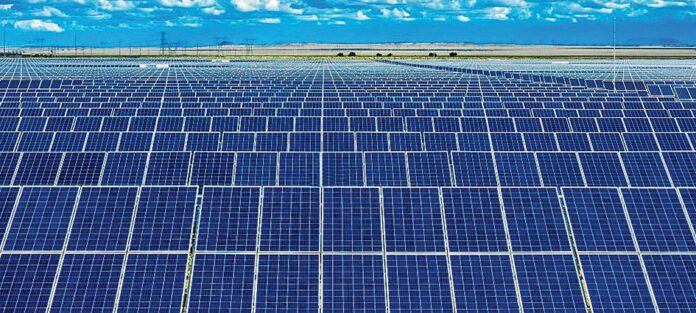Gauteng is set to have its first ever solar farm in the mining town of Merafong, which means mining areas, in the West Rand. The appointment of the developers who will head construction of the farm will begin in just over a month. The farm is expected to produce 800 megawatts.
The Merafong solar farm project is part of Gauteng’s offensive against the paralysing effects of loadshedding on the economy.
According to Noxolo Mtembu, a project manager from the Gauteng Infrastructure Financing Agency, discussions about the construction of the solar farm have been ongoing for the past three years, and the idea was taken to the market the previous year to be engaged by Independent Power Producers (IPPs). Although the Gauteng Provincial Government is playing a facilitative role, IPPs are the ones seeking funding and securing willing buyers to sell power to. Importantly, according to Mtembu, the fact that the farm is based in Gauteng does not mean the power it generates is exclusively for the province. It can be evacuated elsewhere based on the agreements IPPs have with buyers or be absorbed by
Eskom to supply the whole country.
Mtembu also told Sunday World that the land on which the solar farm will be built has been made available by Sibanye Stillwater, following closure of some of its mines in the area. As a result, one of the objectives of the solar farm project is to imagine a post-mining future for the community of Merafong, which relied on mining for economic activity.
“We’ve got job creation targets, so, we want to consider those local economies and the skills base. When you speak about the skills transfer, how are we then making sure that by the time we are into construction, we have trained a considerable amount of youth,
women and disadvantaged members of the community to then participate in this opportunity,” she said.
Mtembu added that appointed IPPs would be scrutinised for empowerment targets. “In that particular area, we are looking at the ownership structure of that particular company, the ownership structures of the companies that they will use in the value chain of establishing that particular solar farm. Do they have preferential procurement targets? We want to see that,” she stated.
Construction of the farm is expected to take off in about 12 months, with contractors urged to use this period to prepare themselves to hit the ground running.
Meanwhile, in his State of the Province Address (SOPA), Gauteng Premier Panyaza Lesufi announced Gauteng’s R1.2-billion commitment to finding sustainable solutions to South Africa’s energy woes. Besides the solar farm, Gauteng will install rooftop solar panels at essential government buildings such as schools, hospitals and clinics.
The provincial government will also meet with power entities in Johannesburg and Tshwane to find collaborative ways to expand their power generation.



